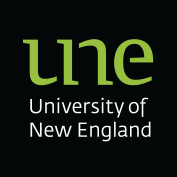2015 John Dillon Memorial Lecture
Professor Christopher O’Donnell, University of Queensland
Memorial Lecture Title: Is Productivity Growth Bad?
The UNEBS R&RT Committee and the AARES New England Branch cordially invite you to attend to the 2015 John Dillon Memorial Lecture delivered by Professor Christopher O’Donnell. The session will be held on Friday 11th September in Lecture Theatre 4, W42 in EBL Building at 1:00PM.
Abstract
Productivity is a quantity concept, usually defined as a measure of total output divided by a measure of total input. Profit is a value concept, usually defined as total revenue minus total cost. Increases in productivity are not always associated with increases in profit. A lot depends on production technologies and how they are used. For example, if technologies exhibit decreasing returns to scale and firms are technically efficient, then, all other things being equal, productivity growth will be associated with decreases in profits. On the other hand, if technologies exhibit constant returns to scale, then productivity growth will generally be associated with increases in profits. Whether productivity growth is good or bad is an empirical question. This memorial lecture shows how to answer this question when prices and profits are unobserved. The methodology allows for variable returns to scale, technical inefficiency, and statistical noise. The empirical application is to OECD economies. The results are used to draw implications for public policy-making.
Christopher O’Donnell is Professor of Economics at the University of Queensland (UQ). He is Director of the UQ Centre for Efficiency and Productivity Analysis, a co-editor of the Journal of Productivity Analysis, an Associate Editor of Empirical Economics, and a Distinguished Fellow of the Australian Agricultural and Resource Economics Society. He is a theoretical and applied econometrician with more than 30 books and papers in international refereed journals. For the last several years, his research has focused on methods for decomposing measures of productivity change into measures of technical change, environmental change and efficiency change. He will publish a book on this topic with Springer in 2016. He has provided in-house training and/or been a consultant for organisations including the World Bank, the Asian Productivity Organisation (APO), the International Rice Research Institute (IRRI), the Australian Energy Regulator (AER), the New South Wales Independent Pricing and Regulatory Tribunal (IPART), and the Australian Independent Hospital Pricing Authority (IHPA).


Recent Comments